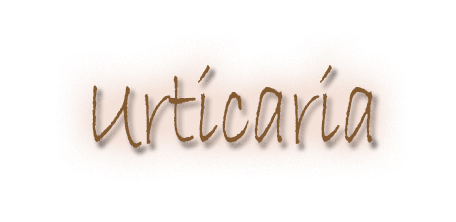
Urticaria or also known as Chronic Hives is basically batches of raised, white or red itchy scabs of various sizes which appear and disappear. Hives usually cause itching, but at times may also develop a sensation of burning or sting. They appear anywhere on the body, including the face, lips, ears or throat.
Urticaria forms in response to the histamine; the blood plasma leaks out of the blood vessels in the skin. The exact cause of Urticaria is yet unknown. Experts believe it can be caused due to immune system disorder, whereas many believe it is linked to other health problems like thyroid or lupus. In rare cases, a reaction to food, medication or food additives are thought to be the underlying cause of Urticaria, as they all cause histamine release. But mostly the exact cause is never indentified, even after conducting tests and monitoring the symptoms.
There are several different types of Urticaria:
Acute Urticaria: In Acute Urticaria, the swelling or hives basically last for a period of less than six weeks. Foods, medicines, infections, insect bites and other internal disease may be responsible for it. Nuts, fish, chocolate, eggs, soy, wheat, milk and tomatoes are the most common foods that cause hives.
Chronic Urticaria: In Chronic Urticaria, the swelling or hives last for a period of more than six weeks. The exact cause of this type of hives is comparatively more difficult to identify than those causing Acute Urticaria. The causes can be due to immune system disorder, infections, malignancy or hormonal disorders.
Physical Urticaria: When the skin is directly stimulated to cold, heat, sun exposure, vibration, sweating, exercise or pressure; hives are caused. The hives usually develop within an hour, at the place exactly where the skin was stimulated.
Dermatographism: Hives which form due to scratching or stroking the skin is known as Dermatographism. It can occur with other forms of Urticaria too.
The main symptom of Urticaria is a red, itchy, raised rash. The rash is basically made up of raised marks in the skin which are known as hives. They are very itchy and can range in size from a few millimetres to the size of a hand. Within a few hours the hives normally fade, but it can be replaced by new ones elsewhere on the body. They usually appear on just one part of the body or at times across a large part of it. As soon as the hives fade off, the skin soon returns to normal.
One should consult a Dermatologist or a General Physician for Urticaria.
The complications involved with Urticaria are:
Difficulty in breathing and dizziness: In severe cases when swelling develops inside the mouth or throat, there can be difficulty in breathing and loss of consciousness.
- Hot water should be avoided, lukewarm water should be used
- Use Gentle, mild soap
- Apply wet cloths to the affected area
- Work or sleep in a cool room
- Wear loose-light weight clothing


